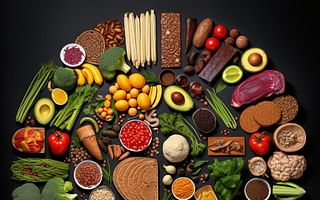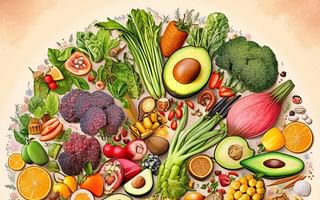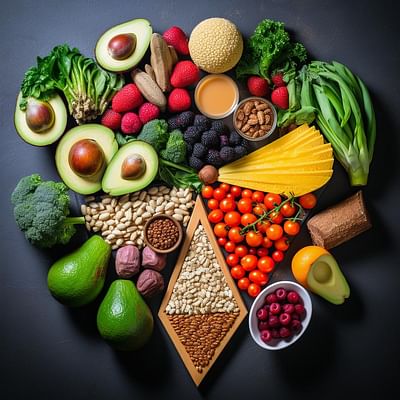🌱 Vegan and Vegetarian Nutritional Benefits Quiz 🌱
Vegan and Vegetarian Nutritional Benefits Quiz
Test your knowledge about the nutritional benefits of vegan and vegetarian diets!
How did you fare in our Vegan and Vegetarian Nutritional Benefits Quiz? Whether you aced it or learned something new, it's clear that plant-based diets have a myriad of health benefits. Let's delve deeper into some of these benefits and answer some common queries about vegan and vegetarian diets.
Fiber and Antioxidants
Our quiz highlighted that vegan and vegetarian diets are typically rich in fiber and antioxidants. But what does this mean for your health? Fiber aids in digestion, helps control blood sugar levels, and can even lower cholesterol. Antioxidants, on the other hand, protect your cells against harmful free radicals, reducing the risk of chronic diseases. Explore more about these benefits in our comprehensive article, Unveiling the Health Benefits of Veganism.
Fat Content
Plant-based diets are generally low in saturated fats, which can help maintain healthy cholesterol levels. However, it's essential to remember that not all fats are bad. Unsaturated fats, found in foods like avocados, nuts, and seeds, are beneficial for heart health. Find answers to your questions about the healthiness of plant-based diets in our FAQ, Are Plant-Based Diets Healthier?
Weight Management
Many people who switch to a plant-based diet often experience weight loss. This is primarily due to the high fiber content in plant foods, which keeps you feeling full and satisfied, thus reducing overeating. However, individual results may vary. To learn more about incorporating plant-based foods into your lifestyle, check out our guide, The Benefits of a Plant-Based Diet and How to Start Incorporating It into Your Lifestyle.
Disease Risk
Studies have shown that vegans and vegetarians may have a lower risk of certain health conditions, including ischemic heart disease and diabetes. This is likely due to the high intake of fruits, vegetables, whole grains, and legumes, all of which are rich in nutrients and antioxidants. For more on this, visit our FAQ, What Are the Health Benefits of Eating Vegan?
Gut Health
Lastly, vegetarian and vegan diets can promote a healthy gut microbiome. This is because plant-based diets are rich in fiber, which feeds the beneficial bacteria in your gut. Learn more about the nutritional completeness of a vegan diet in our FAQ, Is a Vegan Diet Nutritionally Complete According to Science?
Remember, transitioning to a vegan or vegetarian diet is a personal journey. It's always best to listen to your body and consult with a healthcare professional if you have any concerns. Here at Lonely Vegan, we're here to support you every step of the way.







